May 2, 2018 •
May Calendar
See us in person! Are you attending any of these events in May? Make sure you say hi to someone from State and Federal! May 10-13 NCSL Executive Committee Meeting, Denver, CO May 11 NILE Program on State Lobbying, Washington, […]
 See us in person! Are you attending any of these events in May? Make sure you say hi to someone from State and Federal!
See us in person! Are you attending any of these events in May? Make sure you say hi to someone from State and Federal!
May 10-13 NCSL Executive Committee Meeting, Denver, CO
May 11 NILE Program on State Lobbying, Washington, D.C.
May 16 Bloomberg Government’s Next Infrastructure, Washington, D.C.
May 17 GPN Infrastructure Week Rooftop Reception, Washington, D.C.
May 17 Akron Roundtable, Akron, OH
May 22 Akron Urban League — Akron Talks, Akron, OH
May 1, 2018 •
Working Our Way Around the World
You have probably read our blogs, columns, press releases, and digital media posts about our new publication, European Compliance Laws. As they say, it has opened up the world to the staff and to our clients. We have only tiptoed into […]
 You have probably read our blogs, columns, press releases, and digital media posts about our new publication, European Compliance Laws. As they say, it has opened up the world to the staff and to our clients.
You have probably read our blogs, columns, press releases, and digital media posts about our new publication, European Compliance Laws. As they say, it has opened up the world to the staff and to our clients.
We have only tiptoed into Europe and include compliance resources for Great Britain, Ireland, Scotland, and the European Union. We are adding more countries in 2018 and the cost for this year is nominal—only $1,000* more for all of these additional references.
I have also started a discussion with Interel Global Public Affairs and have been invited to speak about compliance at its 5th annual summit, Advancing Interests in a New Era, in Brussels, Belgium.
Recently I sat with Fredrik Lofthagen, Interel’s CEO, and his goal for this year’s program is to look to the future and provide thought-provoking topics on how innovation and technology is bringing in a new era of public affairs and the relationship between people, ideas, and organizations.
Many of you remember Jason Jarrell when he was at the Public Affairs Council. He has been instrumental in connecting me with Fredrik and I am very appreciative of these efforts.
Now, please understand, when I am at a table with Fredrik Lofthagen; Florence Maisel, managing partner in France; Grégoire Poisson, managing partner from the EU, and Jason Jarrell, managing partner of the global practice…well, all I can say is I felt a lot like Rodney Dangerfield in Caddyshack.
In all honesty, learning all about European countries has been eye opening and we look forward to working with the global practice departments of our clients.
Before next month’s issue, I will have also gone on my first cruise on the Mediterranean with my husband, John Chames, as we celebrate our 21st wedding anniversary. It is the first time we will be on a two-week vacation together…Truly concerned one of us will go overboard!
April 27, 2018 •
Special Election Scheduled to Replace Texas Rep. Blake Farenthold
Gov. Greg Abbott called a special election this week to replace U.S. Rep. Blake Farenthold. Farenthold resigned his seat in congress this month after an ethics investigation stemming from a 2014 sexual harassment allegation. The special election will take place […]
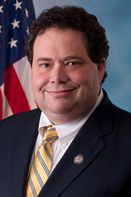 Gov. Greg Abbott called a special election this week to replace U.S. Rep. Blake Farenthold. Farenthold resigned his seat in congress this month after an ethics investigation stemming from a 2014 sexual harassment allegation.
Gov. Greg Abbott called a special election this week to replace U.S. Rep. Blake Farenthold. Farenthold resigned his seat in congress this month after an ethics investigation stemming from a 2014 sexual harassment allegation.
The special election will take place on June 30, 2018, and a runoff election is anticipated to be held this fall.
Gov. Abbott sent Farenthold a letter this week requesting he pay for the cost of the special election since he has not reimbursed the $84,000 of taxpayer money he used to settle the sexual harassment claim.
The letter asked for a response to the request by May 2.
April 27, 2018 •
British Columbia Lobbyist Revolving Door Amendment Effective May 1
On May 1, revolving door amendments to British Columbia’s Lobbyists Registration Act (LRA) come into force. The new amendment mandates a person who is a former public office holder be prohibited from lobbying, in relation to any matter, for a […]
 On May 1, revolving door amendments to British Columbia’s Lobbyists Registration Act (LRA) come into force. The new amendment mandates a person who is a former public office holder be prohibited from lobbying, in relation to any matter, for a period of two years after the date the person left office.
On May 1, revolving door amendments to British Columbia’s Lobbyists Registration Act (LRA) come into force. The new amendment mandates a person who is a former public office holder be prohibited from lobbying, in relation to any matter, for a period of two years after the date the person left office.
Covered public officials include members of the Executive Council, individuals employed in the members’ offices, and parliamentary secretaries. Covered officials also include individuals who formerly occupied senior executive positions in a ministry, associate deputy ministers, assistant deputy ministers, and persons in a position of comparable rank in a ministry.
If the registrar is satisfied that it is in the public interest, the registrar may, on request and on any terms or conditions the registrar considers advisable, exempt a person from the revolving door prohibitions.
The new amendments come into force by regulation of the Lieutenant Governor in Council, pursuant to Bill 8, Lobbyist Registration Amendment Act, 2017, which received Royal Asset on November 30, 2017.
On April 26, the Office of the Registrar of Lobbyists for British Columbia announced it will be temporarily unavailable on May 1 starting at 9:30 a.m. as it makes changes to the registry.
April 27, 2018 •
News You Can Use Digest – April 27th, 2018
National: For Politicians Scraping Bottom, a Scarce Resource: Impeachment Lawyers New York Times – Alan Blinder | Published: 4/22/2018 There are only a handful of lawyers who have helped shepherd governors and lawmakers through the trauma of a possible impeachment. […]

National:
For Politicians Scraping Bottom, a Scarce Resource: Impeachment Lawyers
New York Times – Alan Blinder | Published: 4/22/2018
There are only a handful of lawyers who have helped shepherd governors and lawmakers through the trauma of a possible impeachment. Despite the high stake, the nation’s statehouse impeachment bar is made of up just a few battle-tested lawyers who have improvised legal strategies largely on history and hunches. An impeachment, lawyers who have worked on such proceedings around the country agree, is a political process imbued with law, where electoral rivalries and ambitions uncomfortably share the stage with talk of traditions and procedures. Ross Garber, after representing besieged governors in Alabama, Connecticut, and South Carolina, has arguably become the nation’s leading practitioner of a subspecialty whose relevance can be a barometer of political rancor.
Federal:
Lobbyist Whose Wife Rented to Pruitt Lobbied EPA Despite Denials
Politico – Theodoric Meyer and Eliana Johnson | Published: 4/20/2018
The lobbyist whose wife rented Environmental Protection Agency (EPA) Administrator Scott Pruitt a room in a Capitol Hill condominium for $50 a night helped arrange a meeting at the agency related to restoration of the Chesapeake Bay. Dennis Treacy, a former Smithfield Foods executive who now sits on the board of the Smithfield Foundation, first reached out to an official in EPA’s Office of Intergovernmental Relations to arrange the session as part of his role as the Chesapeake Bay Commission’s citizen representative. Subsequently, Williams & Jensen Chairperson J. Steven Hart – whose wife was then renting a room to Pruitt – called the administrator’s aides to encourage them to take the meeting. Hart has said he is resigning from the firm over the matter.
Mulvaney Backlash May Drive Political Money Changes
Roll Call – Kate Ackley | Published: 4/26/2018
Mick Mulvaney, the White House budget chief and interim director of the Consumer Financial Protection Bureau, told banking executives that as a member of Congress he always met with constituents, but never out-of-town lobbyists unless they gave him campaign money – part of an exhortation to the bankers to push their agenda on Capitol Hill. “If you’re a lobbyist who never gave us money, I didn’t talk to you; if you’re a lobbyist who gave us money, I might talk to you,” Mulvaney said at an American Bankers Association conference. Campaign finance watchdogs and their allied lawmakers are seizing on the dustup to advance both long-shot legislative changes as well as voluntary ones, such as lawmakers refusing donations from PACs or registered lobbyists.
From the States and Municipalities:
California: O.C. Anti-Corruption Task Force Collapsed Amid Infighting Between Federal and Local Investigators
Los Angeles Times – Adam Elmahrek and Richard Winton | Published: 4/17/2018
In the wake of a grand jury report declaring that misconduct was “actively festering” in local government, Orange County created a corruption task force. But nearly four years after it began, the operation quietly fell apart last year amid conflicts between local and federal investigators who had little to show for their work together, according to a Los Angeles Times investigation. Sources said federal agents harbored suspicions about supervisors in the district attorney’s office seeking information about separate FBI corruption probes. And officials clashed over separate inquiries into the mayor of Santa Ana. The end of the task force marks the latest setback in a county where attempts to target corruption have often run into apathy or outright resistance from political leaders.
Colorado: U.S. Rep. Doug Lamborn Should Be Kept Off the 2018 Ballot, Colorado Supreme Court Rules
Denver Post – Jesse Paul, Mark Matthews, and John Frank | Published: 4/23/2018
The Colorado Supreme Court ruled U.S. Rep. Doug Lamborn cannot appear on the ballot in the 2018 Republican primary. The justices said Ryan Tipple, one of the petitioners Lamborn hired to collect the required signatures to qualify, was not a bona fide resident of Colorado, which is required by election law, making the signatures invalid. “We recognize the gravity of this conclusion, but Colorado law does not permit us to conclude otherwise,” the court said. Lamborn’s campaign indicated he would challenge the ruling in federal court.
Maryland: Baltimore City Council Bill Would Tighten Restrictions on Lobbyists, Require Forms Go Online
Baltimore Sun – Luke Broadwater | Published: 4/23/2018
Baltimore City Councilperson Zeke Cohen introduced a bill that would tighten restrictions on lobbyists. The Transparency in Lobbying Act would require lobbyists to identify who they are to city government officials and file quarterly disclosure reports. It also would require the ethics board to post the disclosure reports online within 30 days of their filing and consider a three-year ban for lobbyists who violate the law. Cohen said he has experienced frustration trying to figure out whom the lobbyists approaching him represent.
Michigan: Trash Titan Chuck Rizzo Gets 5½ Years: ‘I’ve let many people down’
Detroit Free Press – Tresa Baldas | Published: 4/23/2018
Fallen trash mogul Chuck Rizzo will spend 66 months in prison for bribing politicians and stealing money from the garbage-hauling firm he built into a regional powerhouse. Rizzo is one of the central figures in a widespread corruption scandal that ensnared Macomb County politicians, fellow businessperson Gasper Fiore, and Detroit police officers. Prosecutors said Rizzo bribed public officials in at least four communities to win lucrative contracts and embezzled $900,000 from his company and investors to line his own pockets.
Missouri: Greitens Charged with Second Felony After AG Investigation into Veterans Charity
Kansas City Star – Jason Hancock, Allison Kite, and Bryan Lowry | Published: 4/20/2018
Missouri Gov. Eric Greitens was indicted for illegally obtaining a donor list from a veterans charity he founded and using it to raise money for his 2016 campaign, a new blow to Greitens in a deepening political and sex scandal that has threatened his grip on the governor’s office. He was charged with one felony count of tampering with computer data in connection with the donor list. The charge dates back to actions prosecutors say took place in April 2015, when Greitens, a former Navy SEAL, was running for governor and serving on the board of directors for The Mission Continues. According to the charging document, Greitens directed an employee of the charity to take a list of donors from The Missouri Continues.
New Jersey: Video Shows Port Authority Commissioner Telling Cops: ‘You may shut the f— up!’
Newark Star-Ledger – Ted Sherman (NJ Advance Media) | Published: 4/24/2018
A Port Authority of New York and New Jersey commissioner who abruptly resigned had been caught on camera delivering an expletive-laced tirade to police officers during a traffic stop. The Tenafly Police Department released the video showing Caren Turner attempting to leverage her influence, talking about who she knew, and complaining the police had “ruined” a holiday weekend with the stop of her daughter and three friends. The video also shows her becoming increasingly agitated with the responding officers and shouting an expletive at them. Turner resigned after the authority learned of the incident. She had chaired the agency’s ethics committee.
New York: Former de Blasio Fundraiser Facing Criminal Charges for Straw Donations in 2013 Mayoral Election
New York Daily News – Molly Newman, Shayna Jacobs, and James Fanelli | Published: 4/19/2018
Thirteen suspects and nine companies, including a major donor to New York City Mayor Bill de Blaio, were accused of rigging public works contracts and abusing the campaign finance system. Husam Ahmad, the founder of construction firm HAKS, was one of several figures linked to the company accused of paying off a Department of Environmental Protection employee to gain unfair access to information about city water system projects. Ahmad was a major contributor and fundraiser for de Blasio’s 2013 campaign and was in turn appointed to the board of the Mayor’s Fund to Advance New York City.
New York: JCOPE Passes Sweeping New Lobbying Regulations
Albany Times Union – Chris Bragg | Published: 4/24/2018
The New York Joint Commission on Public Ethics (JCOPE) approved new rules that overhaul the state’s lobbying law. A major provision will create more disclosure around so-called grassroots lobbying in which well-funded interest groups seek to sway public and elected official opinions through campaign-style efforts. The rules also include an explicit requirement that lobbyists disclose the names of the lawmakers they attempt to influence. The regulations, however, face possible legal action. David Grandeau, the state’s former top lobbying official, said the Legislature never passed a law authorizing JCOPE to broadly reinterpret New York’s lobbying rules.
Ohio: How One GOP Heiress Influenced the Ohio House – and Its Leader’s Demise
Cincinnati Enquirer – Jessie Balmert | Published: 4/23/2018
Cliff Rosenberger was just 33 years old in 2014, when he was chosen to replace Ohio Speaker Bill Batchelder. Rosenberger did not have years of policy experience or a political pedigree, but he did have wealthy Republican donor Virginia Ragan’s money and Batchelder’s support. Ragan’s bankroll helped construct the Republican-controlled Ohio House that Rosenberger built. In the end, Ragan’s money also helped to destroy Rosenberger’s political career. The FBI is investigating Rosenberger’s many trips as a lawmaker and his lavish lifestyle generally, including a condominium he rented from Ragan.
Ohio: Questions Raised About Campaign Contributions and Influence at Columbus City
Columbus Dispatch – Doug Caruso and Rick Rouan | Published: 4/22/2018
Real-estate developers, unions, and some wealthy individuals who do business with the city contributed millions of dollars to the campaigns of elected officials in Columbus. City officials raised about $8.4 million from nearly 5,000 donors disclosed on reports filed from mid-2014 through 2017, but more than 60 percent of that money came from less than four percent of the contributors, according to an analysis. These large donations have prompted critics to question what influence that money leverages in City Hall. Many of the largest donors lobby for zoning changes and compete for contracts. They negotiate with the city on union deals or seek tax incentives. More than half of the 20 largest contributors are developers or linked to companies with business interests throughout the city.
Washington: Washington’s Lottery Deputy Director Ousted After Ethics Investigation
Seattle Times – Rachel LaCorte (Associated Press) | Published: 4/20/2018
Jim Warick, deputy director of Washington’s Lottery, was fired following an investigation into ethics complaints that found he and other lottery employees accepted drinks and food from a vendor who had a contract with the agency, and several employees likely got free hotel rooms during a work trip that coincided with the South by Southwest festival in Austin, Texas. Both state law and the Lottery’s own code of ethics prohibit using their positions to secure special privileges or to accept most gifts. Lottery employees fall under a section of the law that subjects them to greater restrictions than other state employees, and under an ethics advisory opinion, those employees may not accept food when a vendor sponsors a presentation.
 State and Federal Communications produces a weekly summary of national news, offering more than 60 articles per week focused on ethics, lobbying, and campaign finance.
State and Federal Communications produces a weekly summary of national news, offering more than 60 articles per week focused on ethics, lobbying, and campaign finance.
April 25, 2018 •
Oregon Governor Calls Special Legislative Session for May 21
Gov. Kate Brown called a special session for May 21, 2018. The session is expected to be limited to legislation reducing small business taxes. The governor announced she wants to complete the special session in a single day.
 Gov. Kate Brown called a special session for May 21, 2018.
Gov. Kate Brown called a special session for May 21, 2018.
The session is expected to be limited to legislation reducing small business taxes.
The governor announced she wants to complete the special session in a single day.
April 24, 2018 •
JCOPE Adopts Comprehensive Lobbying Regulations
On April 24, the New York Joint Commission on Public Ethics adopted Part 943, commonly referred to as the Comprehensive Lobbying Regulations. The rules were originally introduced in October 2016 and have gone through several revisions. The adopted regulations compile […]
 On April 24, the New York Joint Commission on Public Ethics adopted Part 943, commonly referred to as the Comprehensive Lobbying Regulations. The rules were originally introduced in October 2016 and have gone through several revisions.
On April 24, the New York Joint Commission on Public Ethics adopted Part 943, commonly referred to as the Comprehensive Lobbying Regulations. The rules were originally introduced in October 2016 and have gone through several revisions.
The adopted regulations compile existing guidelines and advisory opinions regarding rules and requirements related to lobbying. For example, the adopted revised rules include an online ethics training requirement for lobbyists and provide further clarification regarding reportable expenses attributable to social media activities and grassroots lobbying.
The adopted rules will become effective January 1, 2019, and are available at the JCOPE website.
April 23, 2018 •
Baltimore City Ethics Ordinance Introduced
City Councilman Zeke Cohen introduced an ordinance amending the Baltimore City Ethics Code. Ordinance No. 18-0230 requires lobbyists to file reports quarterly instead of annually. Additionally, the ordinance obligates lobbyists to affirmatively identify themselves as a lobbyist and the person […]
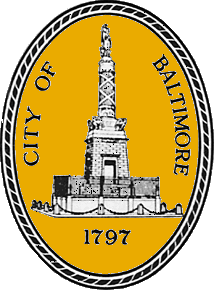 City Councilman Zeke Cohen introduced an ordinance amending the Baltimore City Ethics Code.
City Councilman Zeke Cohen introduced an ordinance amending the Baltimore City Ethics Code.
Ordinance No. 18-0230 requires lobbyists to file reports quarterly instead of annually. Additionally, the ordinance obligates lobbyists to affirmatively identify themselves as a lobbyist and the person on whose behalf they are lobbying to a public servant.
If passed, the ordinance will become effective 30 days after it is enacted.
April 23, 2018 •
Indiana Special Session set for May 14th
Gov. Eric Holcomb called a special session for May 14, 2018. On the top of Holcomb’s list is a school safety spending bill and a bill needed to harmonize state tax code with federal tax code. The special session is […]
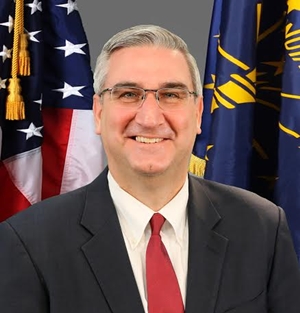 Gov. Eric Holcomb called a special session for May 14, 2018.
Gov. Eric Holcomb called a special session for May 14, 2018.
On the top of Holcomb’s list is a school safety spending bill and a bill needed to harmonize state tax code with federal tax code.
The special session is expected to last one day.
April 20, 2018 •
FEC to Consider Asking for Analysis of Rules For When Quorum Not Met
On April 26, among the items the Federal Election Commission (FEC) is scheduled to consider will be a directive concerning FEC rules when the commission has fewer than four members. On April 19, Chair Caroline C. Hunter submitted a memo […]
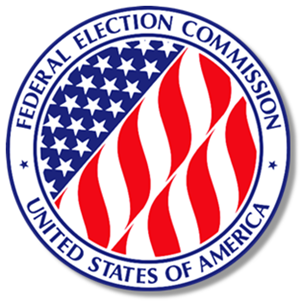 On April 26, among the items the Federal Election Commission (FEC) is scheduled to consider will be a directive concerning FEC rules when the commission has fewer than four members.
On April 26, among the items the Federal Election Commission (FEC) is scheduled to consider will be a directive concerning FEC rules when the commission has fewer than four members.
On April 19, Chair Caroline C. Hunter submitted a memo to the FEC stating her intent to ask the Office of the General Counsel to prepare a pubic memorandum analyzing the current laws and rules applicable when the commission has fewer than four members, the number needed for a quorum. Hunter also wants the commission to seek public comment on this issue after the Office of General Counsel’s memorandum is submitted to the FEC.
Additionally, the commission is scheduled to consider examples of internet communication disclaimers, which will be circulated at the meeting.
April 20, 2018 •
NYCU Video Digest – April 20, 2018
Check out the new News You Can Use Video Digest to catch up on any ethics, lobbying and legislative sessions news you might have missed from this week!
Check out the new News You Can Use Video Digest to catch up on any ethics, lobbying and legislative sessions news you might have missed from this week!
April 20, 2018 •
News You Can Use – April 20, 2018
Federal: Patrick Kennedy Profits from Opioid-Addiction Firms Politico – Adam Cancryn | Published: 4/17/2018 Patrick Kennedy, who stepped down from Congress amid his battles with addiction and mental illness, is a high-profile mental health advocate who sat on President Trump’s […]

Federal:
Patrick Kennedy Profits from Opioid-Addiction Firms
Politico – Adam Cancryn | Published: 4/17/2018
Patrick Kennedy, who stepped down from Congress amid his battles with addiction and mental illness, is a high-profile mental health advocate who sat on President Trump’s opioid commission. At the same time, he has served as chief executive officer of the Kennedy Forum, which is funded in part by major drug makers and addiction-treatment companies. He received more than $1.1 million from the organization between 2014 and 2016. Kennedy also sits on the boards of eight corporations invested in Washington’s response to the opioid crisis, from which he collects director fees and holds an equity stake in the firms. The many entanglements make Kennedy a one-man nexus of government, private-sector, and patient-advocacy work. Despite his extensive advocacy work, Kennedy said he has not registered as a lobbyist because his activities do not meet the legal specifications of lobbying.
From the States and Municipalities:
Arizona: Woman at Center of Phoenix Lobbyist Forgery Scandal Convicted, Sentenced
Arizona Republic – Dustin Gardner and Rick O’Dell | Published: 4/13/2018
Beth Briggs, a legal assistant with the firm Burch & Cracchiolo, pleaded guilty to filing fraudulent lobbying documents with the city of Phoenix. She must pay a $1,000 fine and complete 200 hours of community service. Investigators said Briggs falsely backdated documents, forged a former attorney’s signature, and signed an affidavit falsely claiming she had mailed the forms. The forged documents made it appear as if Burch & Cracchiolo had complied with an ordinance that requires lobbyists at regular intervals to register, list their clients, and disclose contributions or gifts to elected officials. The firm, however, had not filed the required forms for about two years, even as one of its top attorneys lobbied the city.
Florida: Fernandez Gave Football Tickets to City Officials; Investigation Finds ‘No Rule Violation’
Tallahassee Democrat – Jeff Burlew | Published: 4/16/2018
Two high-ranking city officials accepted Florida State University football tickets in 2016 from former Tallahassee City Manager Rick Fernandez, who was ousted this year for accepting football tickets from a local lobbying firm under FBI scrutiny. The city, in an internal inquiry, determined the employees did not violate Florida law by accepting the tickets or not reporting them as gifts because they did not exceed a $100 threshold. However, the city found, had the tickets cost a penny more, they would have exceeded the statutory threshold.
Florida: Stymied in Effort to Fill Empty Seats, North Miami Beach Commission Can’t Take a Vote
Miami Herald – Kyra Gurney | Published: 4/18/2018
A week after Mayor George Vallejo resigned and pleaded guilty to violating campaign finance laws, North Miami Beach scrambled to fill a vacancy on the city commission so the elected body had enough members to function. Only four of the commission’s seven seats were filled and it needed at least five members present to take any action. The city secured a last-minute order from a judge allowing recently ousted Commissioner Frantz Pierre to return for an emergency meeting so the commission could appoint a new member. Then, Commissioner Anthony DeFillipo announced he could not participate in the meeting. With that, the commissioner marched out of the meeting, leaving the panel where it started, one vote shy of the number needed to fill a vacant seat.
Illinois: Cook County Tax Officials Take Excess Campaign Donations from Appeals Firms, Ethics Panel Says
Chicago Tribune – Ray Long and Hal Dardick | Published: 4/13/2018
Records show Cook County officials who decide the outcome of property tax appeals accepted more than $500,000 in campaign donations from law firms and other businesses that help challenge tax bills, far more than permitted under a county ethics ordinance. Assessor Joseph Berrios and Board of Review members Larry Rogers Jr., Dan Patlak, and Michael Cabonargi were told to return about $440,000 of about $600,000 given by the law firms or other companies involved in the property tax appeals business. Hoping to prevent “pay-to-play,” the county board set caps on contributions from people or businesses that have “sought official action by the county within the preceding four years.” Donations are limited to $750 in a non-election year and $1,500 in an election year.
Iowa: Regulator: Iowa official won’t have to ID outside businesses
WRAL – Ryan Foley (Associated Press) | Published: 4/18/2018
Secretary of State Paul Pate will not be required to identify his private businesses in a conflict-of-interest disclosure form because other state officials have kept similar information secret without consequence, said Iowa Ethics and Campaign Disclosure Board Director Megan Tooker. Pate owns a strip mall and two rental storage businesses that he did not list on a recent ethics filing. As mandated by state law, the form asked Pate to identify “each business, occupation, or profession” in which he was engaged during 2017 and warned of criminal and civil penalties for failing to do so.
Kansas: Gov. Colyer Signs Sweeping Executive Branch Transparency Measure
Kansas City Star – Hunter Woodall | Published: 4/16/2018
Kansas Gov. Jeff Colyer signed a bill that will require people trying to influence an executive branch official on contracts to register as a lobbyist. “Senate Bill 394 will equalize the treatment of lobbying within all branches of state government,” Colyer said in a statement. An investigation last year by The Kansas City Star found the state has one of the most secretive governments in the nation.
Kansas: Kobach Helped Lead Trump’s Election Panel. A Judge Just Found Him in Contempt in a Voter ID Case
Denver Post – Eli Rosenberg (Washington Post) | Published: 4/18/2018
One of President Trump’s leading voter-fraud investigators was ruled in contempt of court for flouting a judge’s orders to ensure voters in his home state were not misled ahead of the 2016 general election. Kansas Secretary of State Kris Kobach, who was vice chairperson of the election integrity commission the the Trump administration disbanded, was cited by U.S. District Court Judge Julie Robinson for a “history of noncompliance and disrespect” for the court’s decisions. In 2016, Kobach lost a challenge to the Kansas Documentary Proof of Citizenship law. He then failed to comply with the court’s directive that he inform affected voters they would be deemed registered and qualified to vote, according to the ruling .
Massachusetts: Thornton Law Firm Didn’t Break State Campaign Finance Laws, Prosecutor Says
Boston Globe – Andrea Estes | Published: 4/18/2018
A probe of the Thornton Law Firm found “no conclusive evidence of a crime,” despite an initial review from Massachusetts regulators saying there may have been campaign finance violations, Essex District Attorney Jonathan Blodgett said. The Office of Campaign and Political Finance had asked Attorney General Maura Healey to investigate contributions from the firm’s partners and spouses. The agency raised questions over whether partners sought to disguise where the money came from and whether the contributions were with personal funds and were not paid or not reimbursed by the law firm. State law bans corporations from contributing to campaigns and prohibits a person from reimbursing someone else for a political donation.
Missouri: Hawley Says Probe into Greitens, Charity Indicates Potential Felony by Governor
Kansas City Star – Lindsay Wise (McClatchy), Jason Hancock, and Bryan Lowry | Published: 4/17/2018
Missouri Gov. Eric Greitens, already facing a felony charge related to an extramarital affair, could soon face another after the state’s attorney general cited evidence that suggests Greitens’ use of a charity donor list for political purposes may have broken state law. Attorney General Josh Hawley said an investigation by his office shows Greitens took computer data listing the top donors to The Mission Continues without the consent of the veterans’ charity he had founded and used it to raise money for his gubernatorial campaign. Hawley said he referred the matter to St. Louis Circuit Attorney Kim Gardner, who has jurisdiction to decide whether to charge Greitens with a crime. He also referred his findings to a special House committee that is considering whether to recommend impeachment proceedings against the governor.
Montana: Dark Money Group Pays $30K Fine for Breaking Montana Campaign Finance Law
Montana Current – John Adams (Montana Free Press) | Published: 4/14/2018
A political group has agreed to pay a $30,000 fine for violating Montana’s campaign finance laws in the 2012 elections. The Montana Growth Network claimed to be an incidental political committee that did not have the primary purpose of supporting or opposing candidates or ballot issues and therefore did not have to disclose its donors. The commissioner of political practices concluded the group should have registered as an independent political committee and reveal donors.
New York: Cuomo Touts Political Ad Transparency Law as Other Reforms
Gotham Gazette – Samar Khurshid | Published: 4/19/2018
New York Gov. Andrew Cuomo signed a bill that prohibits foreign entities from creating independent expenditure committees or buying political ads, requires anyone who purchases an online political ad to register as an independent expenditure committee, and requires online ads to include information about who paid for them, as is currently required of traditional media platforms. The state Board of Elections will also now create a public archive of those online ads and retain them for five years. The bill was a component of Cuomo’s larger Democracy Agenda that otherwise fell by the wayside during budget negotiations and seem unlikely to pass in the remaining months of the legislative session.
New York: New York Attorney General Seeks Power to Bypass Presidential Pardons
New York Times – Danny Hakim and William Rashbaum | Published: 4/18/2018
New York Attorney General Eric Schneiderman asked legislators to amend state law so prosecutors can charge individuals who have benefitted from a presidential pardon. Right now, New York law prevents people from being prosecuted more than once for crimes related to the same act, even if the original prosecution was in federal court. In explaining the need for the change, Schneiderman cited recent reports that President Trump may be considering pardons that could impede criminal investigations. Schneiderman argued that due to the current statute, a “strategically-timed pardon” could protect individuals who have violated New York laws.
Washington: Many of the State’s Powerful Lobbyists Work from One Olympia Neighborhood
The Olympian – Joseph O’Sullivan (Seattle Times) | Published: 4/16/2018
Nearly one-third of the 62 homes found immediately south of the Capitol in Olympia are owned or used by lobbyists, corporations, or unions, according to a review of public records. Those homes, some just across the street from the Capitol campus, are a physical manifestation of the close relationship between Washington’s nearly 800 registered lobbyists and the state’s elected officials. Last year, seven of the state’s 10 highest-earning lobbying firms had a presence in the neighborhood. Some lobbyists say they use their Olympia homes only for sleep or light work before and after the long days of the legislative session. With sessions in recent years lasting between two and seven months, the homes can remain vacant for long stretches in between.
 State and Federal Communications produces a weekly summary of national news, offering more than 60 articles per week focused on ethics, lobbying, and campaign finance.
State and Federal Communications produces a weekly summary of national news, offering more than 60 articles per week focused on ethics, lobbying, and campaign finance.
April 19, 2018 •
Utah Adjourns Veto Session Sine Die
The Utah Legislature adjourned a veto session sine die on Wednesday after overriding a pair of vetoes from Gov. Gary Herbert. The Legislature resurrected and passed Senate Bill 171, allowing legislators to defend laws they pass in court instead of […]
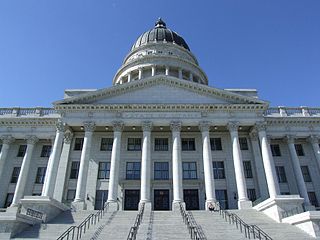 The Utah Legislature adjourned a veto session sine die on Wednesday after overriding a pair of vetoes from Gov. Gary Herbert.
The Utah Legislature adjourned a veto session sine die on Wednesday after overriding a pair of vetoes from Gov. Gary Herbert.
The Legislature resurrected and passed Senate Bill 171, allowing legislators to defend laws they pass in court instead of relying on the Attorney General’s office, and House Bill 198, requiring the Attorney General to give written legal opinions to the Legislature when requested.
A spokesperson for the Governor said he hopes for an opportunity to test the constitutionality of the new laws in court.
April 19, 2018 •
Nebraska Legislature Adjourn Sine Die
The Nebraska Legislature adjourned sine die April 18. Lawmakers took no action on Legislative Bill 1099 to adopt the Legislative Ethics Act after Sen. Bill Kintner’s resignation last session for retweeting offensive comments and using a state-issued computer to engage […]
 The Nebraska Legislature adjourned sine die April 18.
The Nebraska Legislature adjourned sine die April 18.
Lawmakers took no action on Legislative Bill 1099 to adopt the Legislative Ethics Act after Sen. Bill Kintner’s resignation last session for retweeting offensive comments and using a state-issued computer to engage in cybersex.
The bill would have created an ethics board to receive and investigate complaints against any member or employee of the Legislature.
State and Federal Communications, Inc. provides research and consulting services for government relations professionals on lobbying laws, procurement lobbying laws, political contribution laws in the United States and Canada. Learn more by visiting stateandfed.com.

